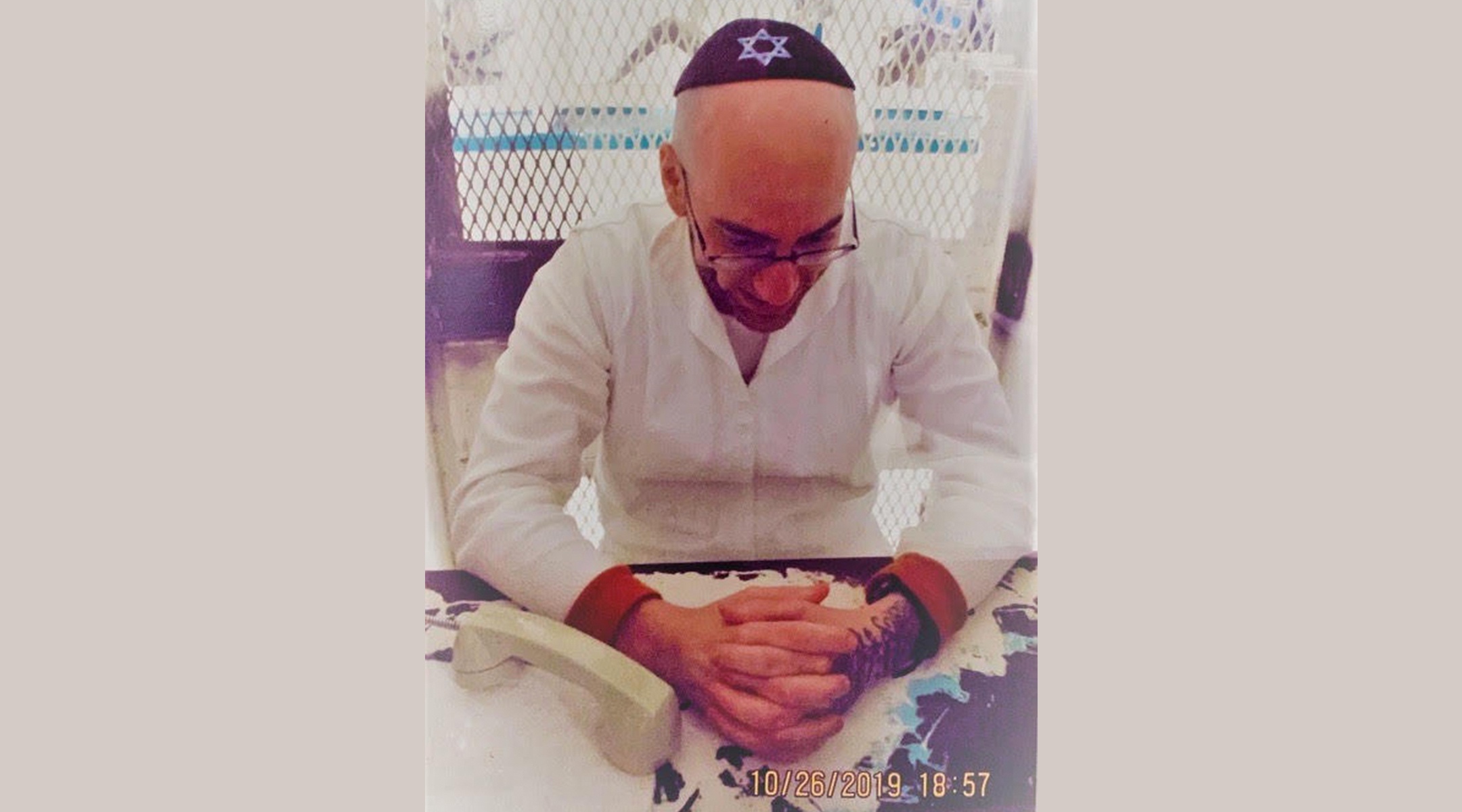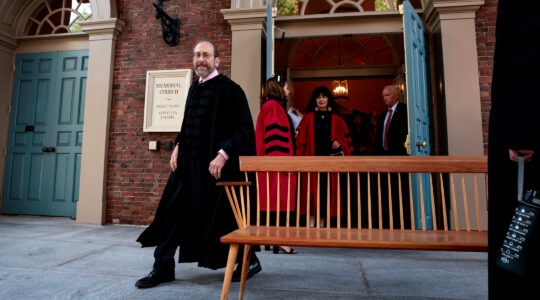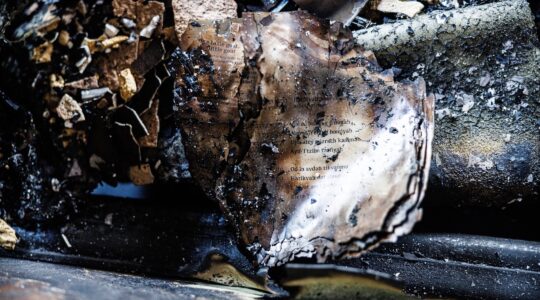(JTA) — A stay of execution was upheld for a Jew on death row in Texas, one day before he was scheduled to receive lethal injection.
Jedidiah Murphy, 48, was sentenced to death for the fatal 2000 shooting of 80-year-old Bertie Lee Cunningham in Dallas County during a carjacking.
On Monday, one day before his execution date, Murphy’s spiritual advisor and chaplain, Rabbi Dovid Goldstein, who guided him as he celebrated being a bar mitzvah in 2016, accompanied Murphy as he lay tefillin for what they both thought might be his last time. But later in the day, a federal appeals court upheld the stay of execution.
The ruling caps a period of a few days when Murphy’s fate hung in limbo. He was initially granted a stay of execution by a federal district court on Oct. 6 on the grounds that DNA evidence suggesting he was capable of “further dangerousness” did not meet the required burden of proof, as his attorneys had argued.
But two days later, the Attorney General’s Office filed a motion in the federal Fifth Circuit Court of Appeals to vacate the stay of execution. Had that motion been accepted, Murphy would have been executed on Tuesday.
The appeals court ruled, however, that the stay of execution would remain in effect until a similar court case also involving DNA was resolved. That case was brought by a different Texas prisoner, Ruben Gutierrez.
“We enter no ruling on the motion to vacate the stay at this time,” the three judges wrote in their ruling. “Therefore, the stay of execution will remain in effect. Once the opinion of this court issues in Gutierrez, we will order additional briefing on whether the stay should be vacated.”
Murphy and his supporters believe the DNA evidence will show that Murphy never committed an earlier carjacking that was central to the argument that he deserved the death penalty. He was never charged in that crime, but prosecutors accused him of committing it and said it suggested he was capable of “further dangerousness.”
Murphy’s attorneys, who could not be reached for comment, have been unsuccessful in other recent attempts to spare their client from the death penalty. On Friday, the same day the stay was granted, a federal court denied a request to block Murphy’s execution. In that filing, his attorneys alleged that the drugs he was set to be injected with were damaged when they were exposed to smoke and extreme heat during a recent fire at a state prison.
He was also denied clemency from the Texas Board of Pardons and Paroles on Sunday.
In a message Murphy sent to Cantor Michael Zoosman, a former prison chaplain who runs L’Chaim, a Jewish anti-death penalty group, Murphy said the back-and-forth on what will happen to him is difficult to handle, but is even more challenging for his family.
“We’ve seen it many times where we’re in a place like this, the day before, there’s a stay in place and you still have the execution carried out,” Zoosman told the Jewish Telegraphic Agency.
Because of the uncertainty, last week, Zoosman sent Murphy a copy of the viddui, a traditional Jewish confessional prayer recited before death.
“I’ve done that many times for people as a hospice and hospital chaplain,” Zoosman explained. “But it also applies here, if in fact he is going to be put to death, then this is the prayer that our tradition offers for someone who’s about to face death.”
Murphy was abused as a child by his birth father and adoptive father and abandoned his birth mother, who was Jewish, according to the Forward. In the year before the murder, Murphy had sought mental health care. He was diagnosed with mental dissociative identity disorder, major depression and alcohol dependency, the Texas Observer reported. While he has confessed to the crime, he was high on cocaine and says he does not remember it.
“Three years ago I cried out to Hashem and submitted to his authority and my mind was completely restored,” Murphy wrote in an email from prison to the Jewish Telegraphic Agency. “That is a miracle and so do I have faith? Absolutely, because I’ve beaten the odds time and again and I know it is for a reason I don’t fully understand. Being Jewish brought a sense of community and I’ve been blessed with Rabbis that pour into someone that did not deserve it.”
JTA has documented Jewish history in real-time for over a century. Keep our journalism strong by joining us in supporting independent, award-winning reporting.






